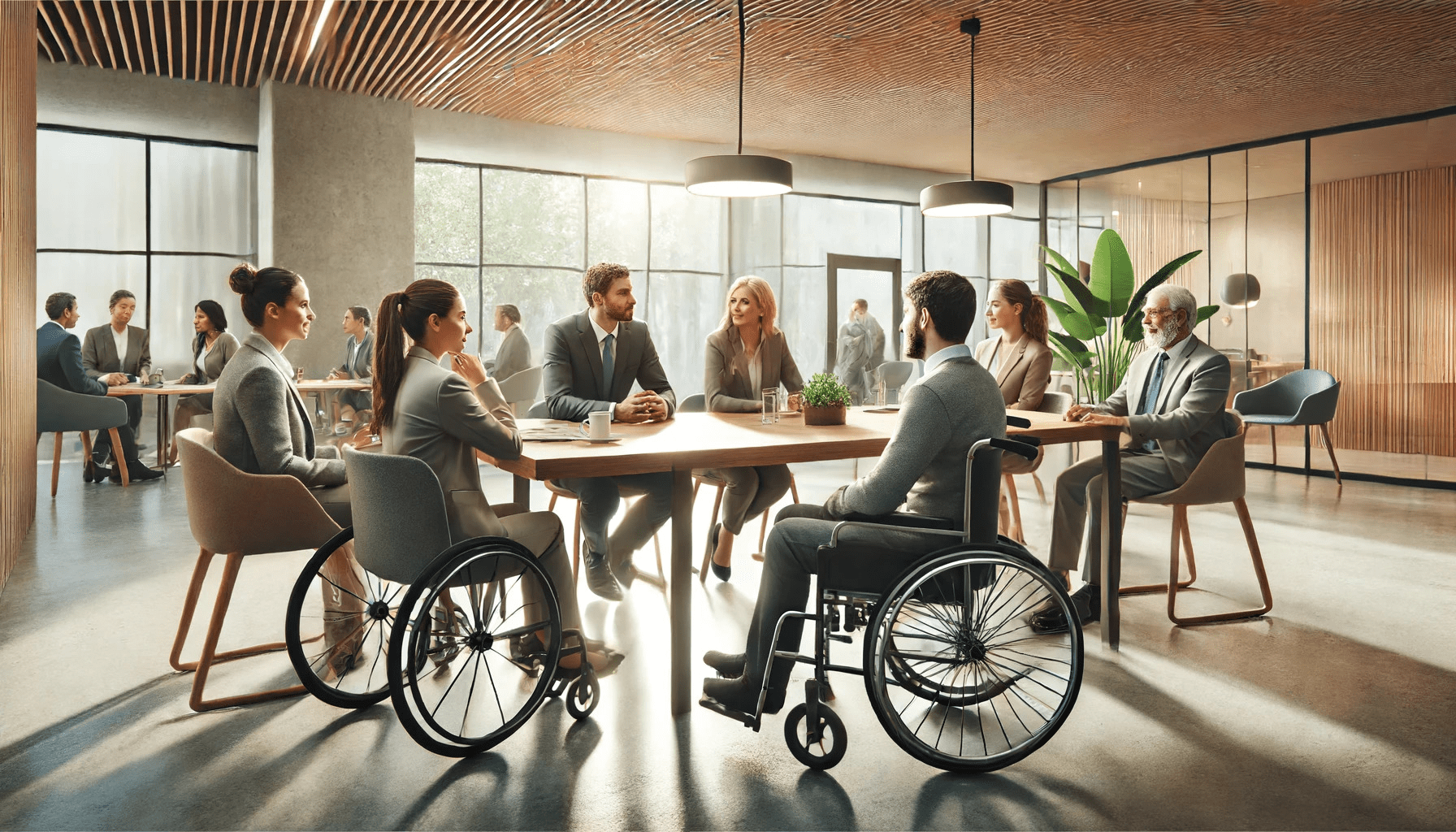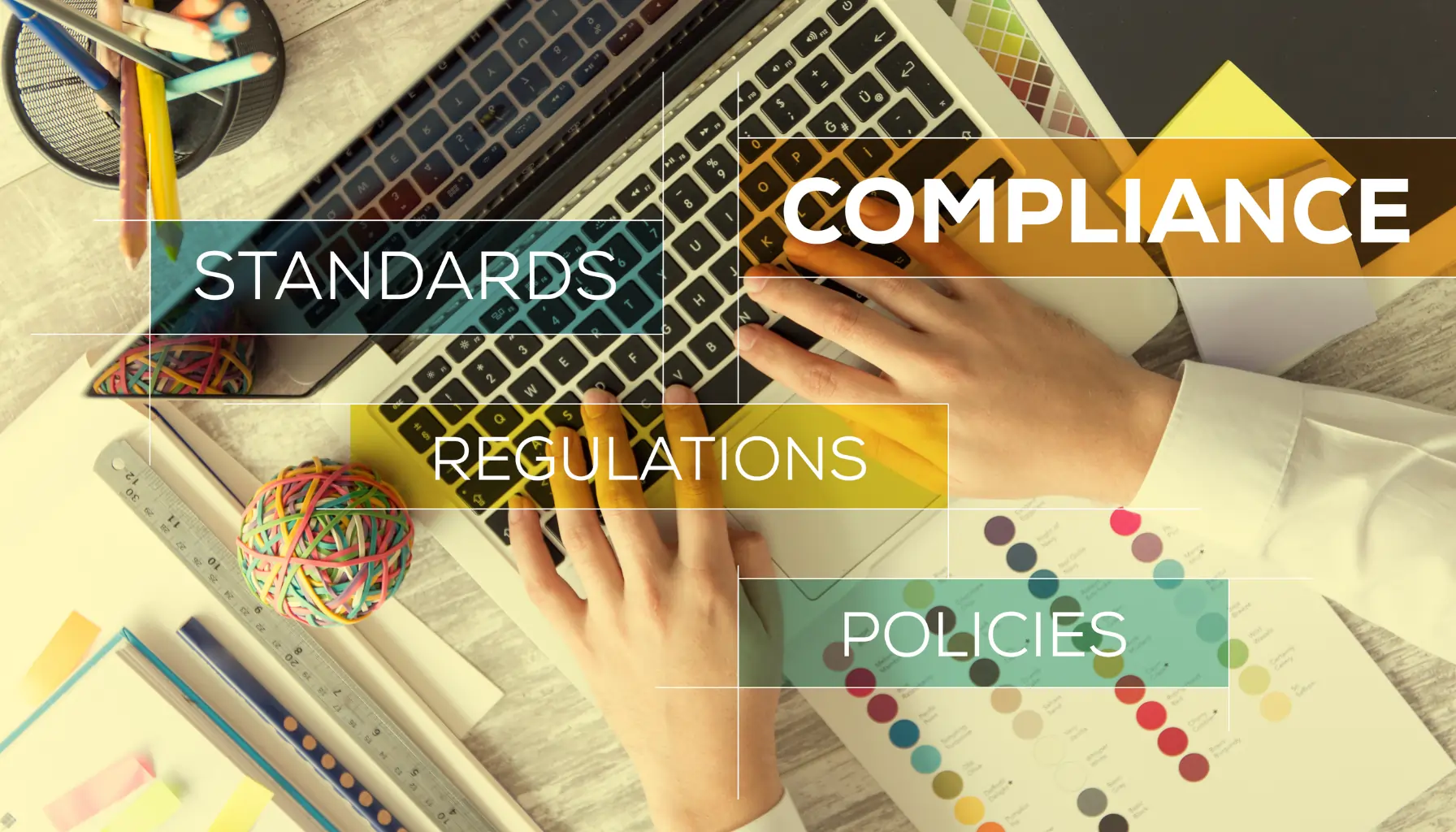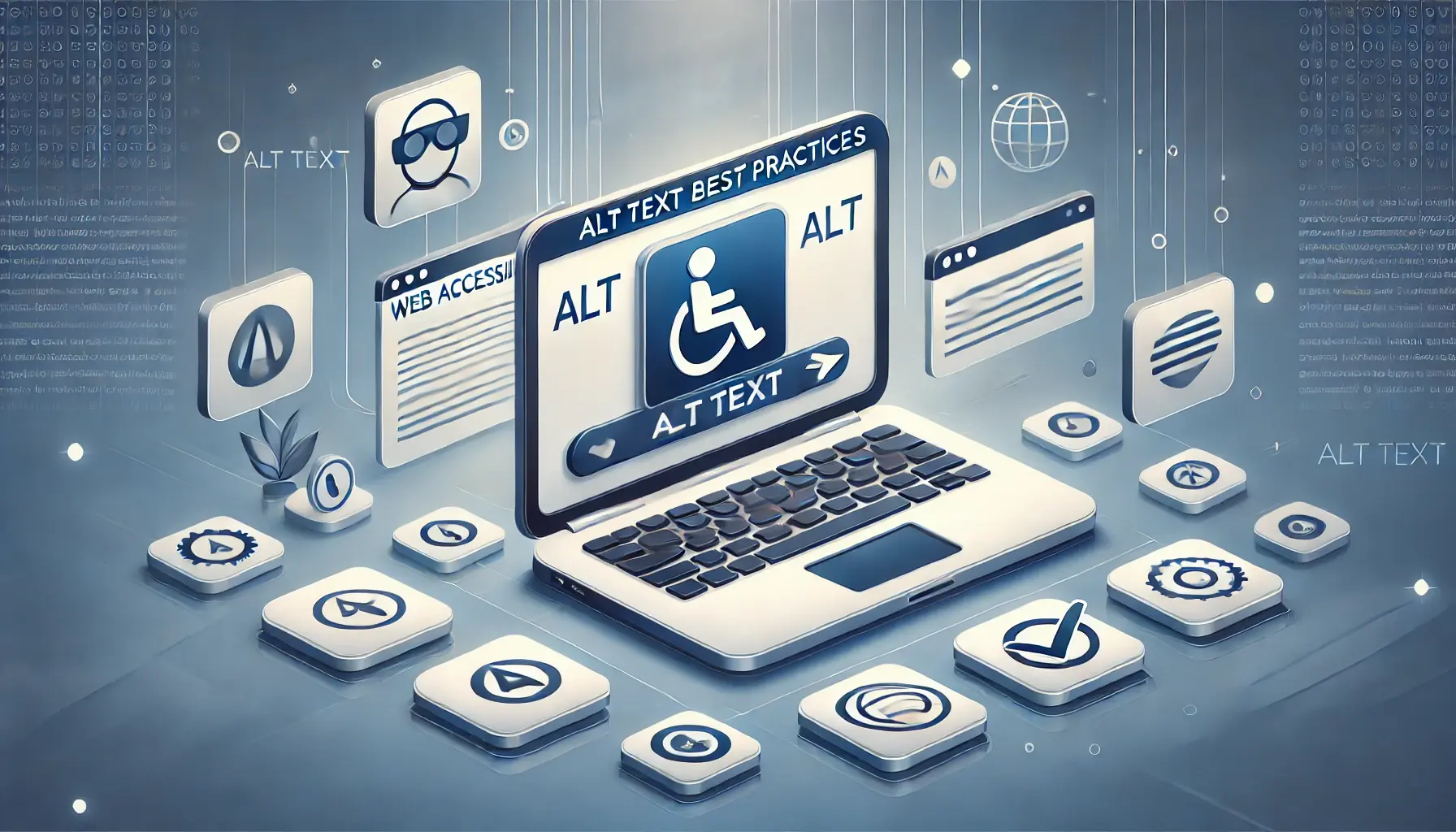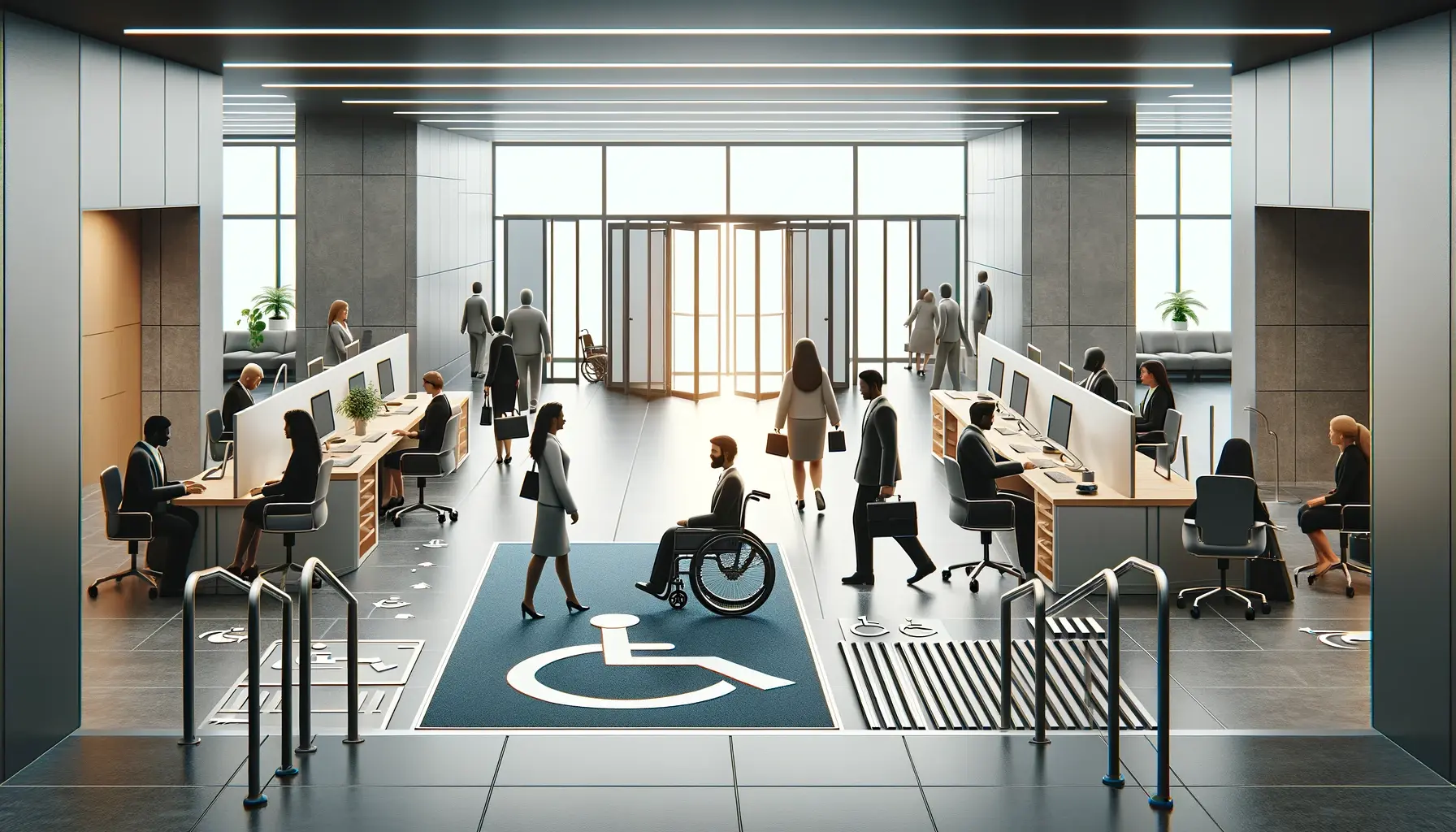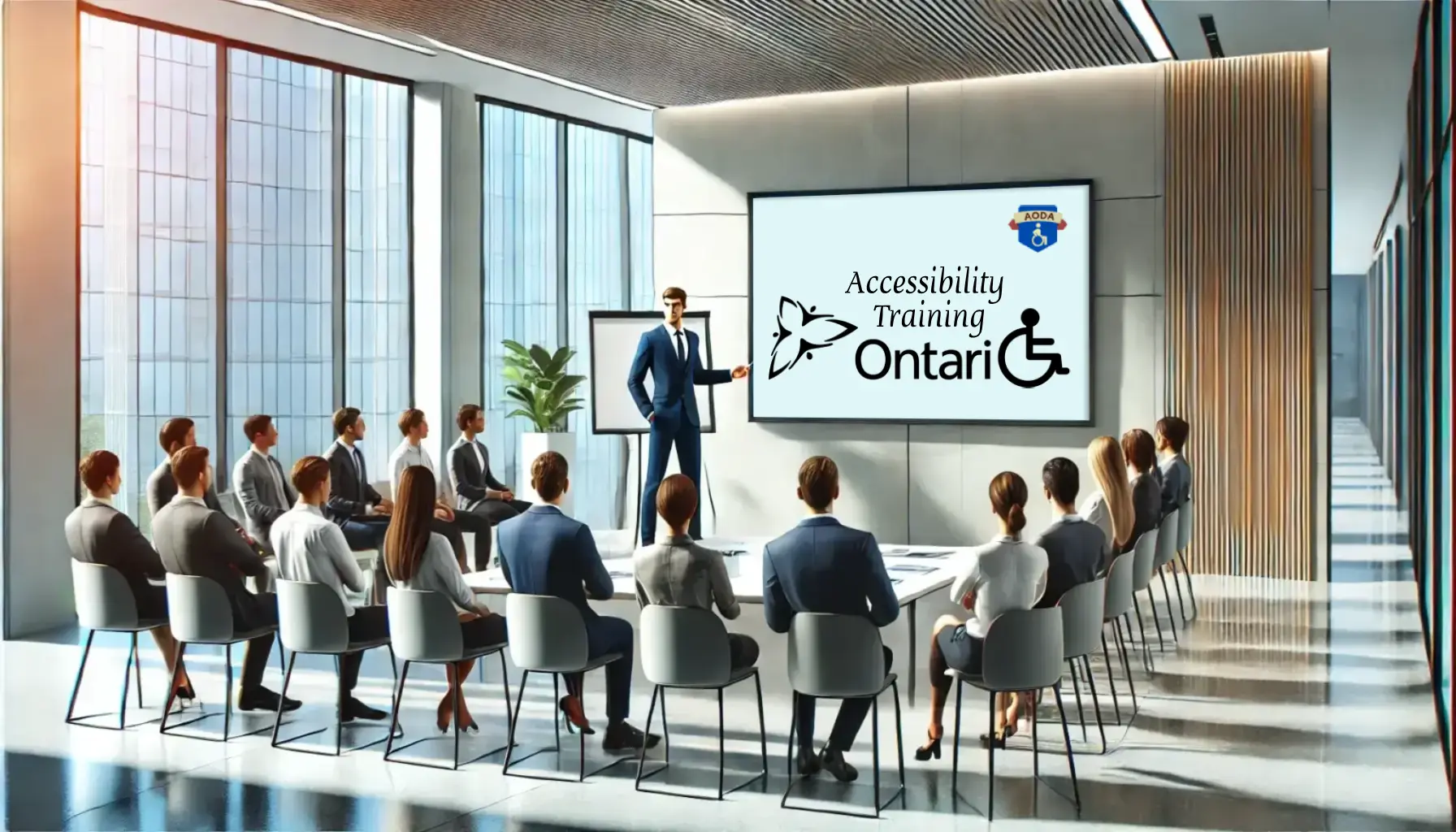Accessibility is fast becoming one of the core service pillars of government organizations and businesses. Now more than ever, organizations work to ensure that their spaces serve people with disabilities respectfully and comfortably. This shift is due to the advocacy of various disability groups, growing social consciousness, and accessibility laws such as the ADA, AODA, and ACA. Embarking on the accessibility journey can be daunting for beginners, but having a prudent accessibility plan is the key.
Accessibility services are crucial to ensure that all individuals, regardless of their abilities, have equal access to infrastructure, services, products, and information. It encompasses various components, including policy development, assessment and audit, barrier removal and prevention, training, and monitoring.
However, one key component of accessibility planning, consulting people with disabilities, is often overlooked due to various perceived barriers. In this blog, we’ll explore the importance of consulting people with disabilities as part of accessibility planning and we’ll provide practical tips on how to navigate these consultations effectively.
The Importance of Consultations
Consulting people with learning disabilities is not merely a checkbox on the accessibility planning checklist. It’s fundamental to the process, offering firsthand perspectives that complement the theoretical knowledge. These consultations help:
- Identify Real Needs: People with disabilities are experts in their experiences. Consulting them ensures that accessibility initiatives address real needs and challenges rather than assumptions.
- Build Trust and Collaboration: Meaningful consultations demonstrate a commitment to inclusivity and develop trust and collaboration with the disability community.
- Enhance Effectiveness: By incorporating diverse perspectives, accessibility plans become more effective, ensuring they cater to a broader range of needs and cover different boundary cases as they grants for people with disabilities.
Preparing for Consultations for People with Disabilities
Just like any other user consultation, there are a few key points you need to keep in mind while preparing to consult people with disabilities:
- Conduct Research and Education: Before engaging in consultations, educate yourself and your team about various disabilities and best practices for consultations. Understanding terminology and respectful language, like person-first language, is crucial.
- Identify Key Stakeholders: Determine which individuals or organizations represent the disability community relevant to your project. This may include advocacy groups, disability service providers, or famous people with disabilities.
- Establish Clear Objectives: Define the purpose and goals of the consultations. What specific aspects regarding the accessibility of planning consultations do you seek input on? Clarifying objectives ensures focused and productive discussions.
Conducting Consultations
Here are some things to keep in mind while conducting the consultation exercise:
- Choose an Accessible Venue: An accessible venue or virtual platform accommodates various communication needs, such as sign language interpreters, captioning, or screen readers.
- Create a Welcoming Environment: Foster a welcoming and inclusive atmosphere. Begin by introducing yourself and acknowledging the importance of the participants’ contributions. Emphasize respect, active listening, and open-mindedness.
- Ask Open-Ended Questions: Encourage participants to share their experiences, challenges, and suggestions freely. Avoid leading questions and allow the participants’ ideas to emerge naturally.
- Respect Privacy and Boundaries: Be mindful of privacy concerns and personal boundaries. Some individuals may not feel comfortable sharing certain aspects of their disability or experiences so it’s essential to respect their privacy.
Post-Consultation Actions
The following are actions to take once you complete the consultation:
- Summarize and Share Findings: Compile the insights gathered during consultations into a comprehensive summary. Share this document with stakeholders, emphasizing the importance of incorporating these insights into accessibility planning along with actionable items.
- Maintain Ongoing Engagement: Consultations should not be a one-time event. Develop ongoing dialogue and engagement with the disability community throughout the planning, implementation, and evaluation stages of accessibility initiatives.
- Seek Feedback: Invite participants to provide feedback on the consultation process. What worked well? What could be improved? Incorporate this feedback into future consultations to continually enhance their effectiveness.
Case Studies
Accessibility Partners has helped many places (such as government offices, municipalities, businesses, and transportation hubs) become more welcoming and accessible for everyone. We talk to people with disabilities to get it right. One particularly worthwhile thing we did was team up with Canadian Hearing Services, the Canadian National Institute for the Blind, and other disability organizations to make many Canadian airports and seaports more accessible for everyone along with better housing for people with disabilities.
Conclusion
Meaningful consultations with people with disabilities are integral to effective accessibility planning. By prioritizing inclusivity, actively listening to diverse perspectives, and committing to collaboration, stakeholders can ensure that accessibility initiatives meet the real needs of the disability community. Remember, accessibility is not just about meeting legal requirements; it’s about creating environments where everyone can fully participate and thrive.

